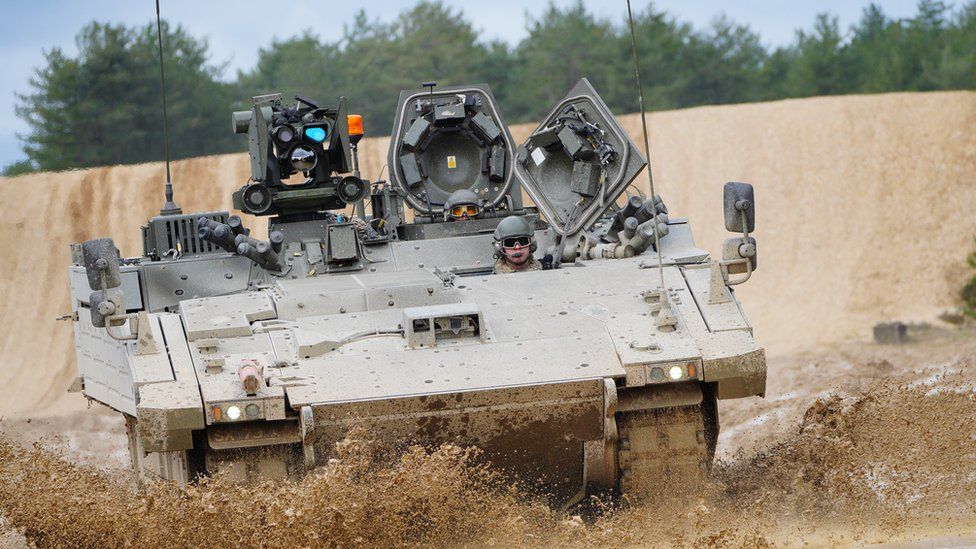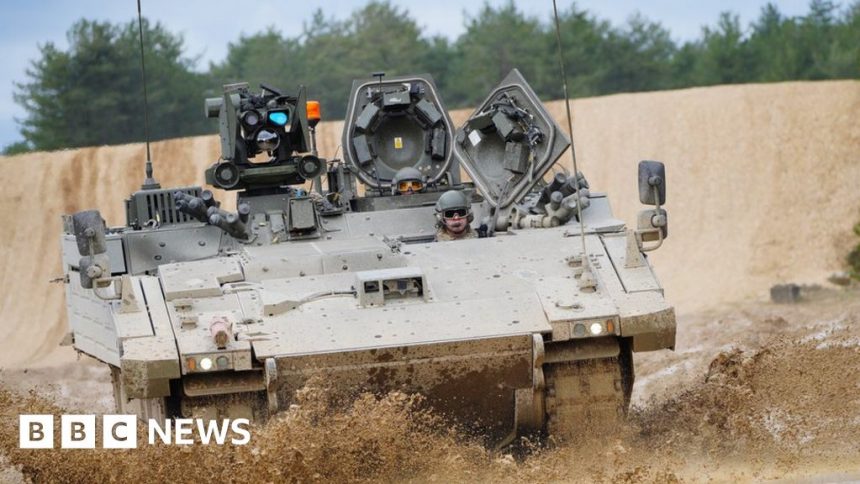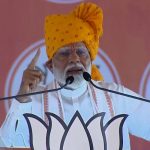Rishi Sunak pledges to hit 2.5% GDP defence spending target by 2030
-
Published

The UK will increase defence spending to 2.5% of national income by 2030, Rishi Sunak has promised.
The move, which No 10 said would see £75bn more for the military over the next six years, follows pressure from Conservative MPs and ministers.
The government says it plans to spend 2.3% of gross domestic product (GDP) on defence this year.
It had previously said it would raise spend to 2.5% when economic conditions allowed, without setting a date.
But the announcement of a specific date, made by the prime minister during a visit to Poland, hardens the spending commitment ahead of the general election, which could come as soon as July.
Labour has said it would raise defence spending to 2.5% of GDP “as soon as resources allow” if it wins the election.
Downing Street said UK defence spending would increase “immediately and rise linearly” to hit £87bn by the end of the decade.
It says this will mean an additional £10bn for munitions production over the next decade, and extra money for research and Ukraine.
Two ministers, Anne-Marie Trevelyan and Tom Tugendhat, publicly urged him to increase spending last month.
Mr Sunak confirmed earlier the UK will provide an additional £500m for Ukraine this year, on top of £2.5bn already allocated.
Downing Street said its 2.5.% commitment was “fully-funded” – but some experts have previously expressed scepticism over long-term targets.
Paul Johnson, director of the Institute for Fiscal Studies think tank, said the previous, vaguer promise to raise spending to 2.5% of GDP was “not worth the paper it’s written on unless accompanied by some sense of how it will be afforded”.
Last month, MPs on the Public Accounts Committee (PAC) warned the government currently lacked a “credible plan” to fund the MoD.
Last year the National Audit Office (NAO) said the Ministry of Defence was facing a £16.9bn black hole in its finances – despite an injection of £46.3bn over the next 10 years.
Mr Sunak refused to rule out calling a general election in July when questioned earlier by reporters, repeating his previous comment that it would be “in the second half” of the year.
Related Topics
-
-
Published3 hours ago
-
-
-
Published8 March
-






